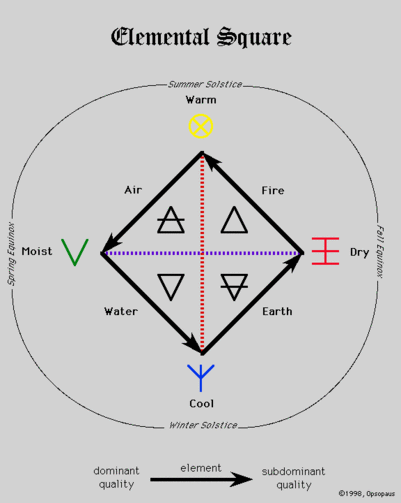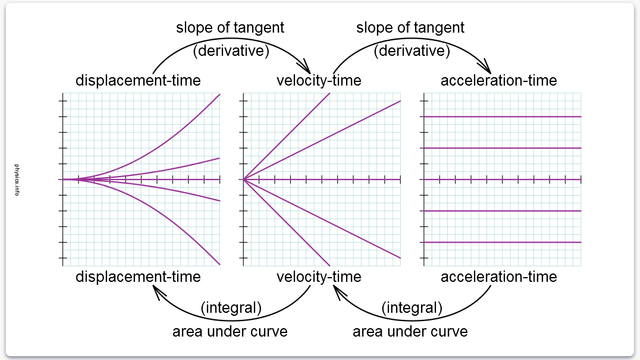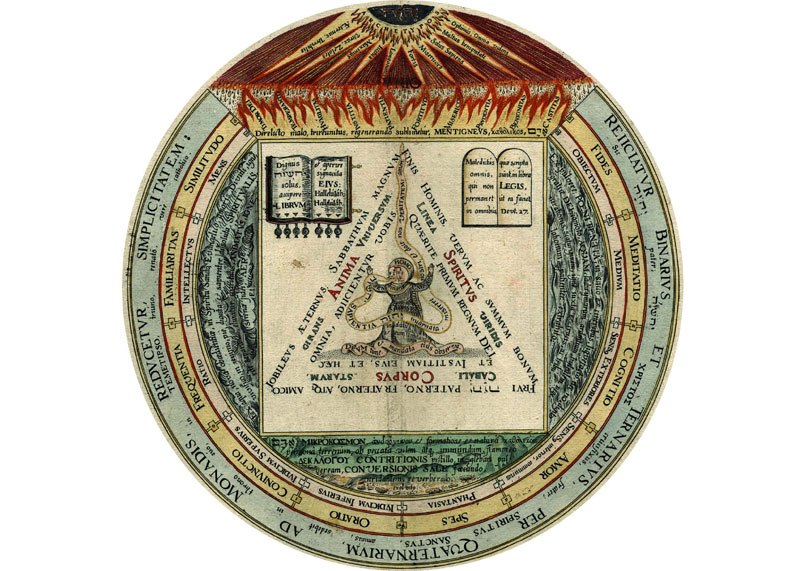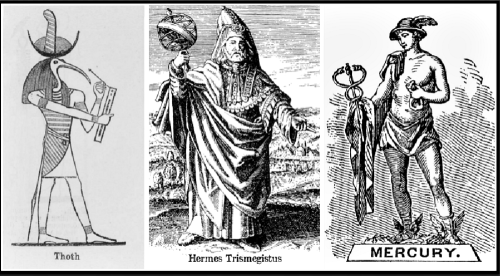Metaphysics alchemy and algebra

Energy
The first concept at the root of metaphysic is energy.
Energy is an old concept that date backs to aristotle and metaphysics. It’s basically an unit of motion or change.
The most simple example of energy, or motion, is kinetic energy, or motion in space, if an object is at position A at a time t1, and position B at time t2, the energy of the object at time t1 is the difference of position between B and A.
The concept of energy is not limited to kinetic energy and spacial motion, it apply to any kind of change or transformation that an object can undergo in a particular circusmatance.
Metaphysics

The first to study energy as such is probably aristotle, in the metaphysics.
Metaphysics is the study of proporties of objects, seen as being composed of elemental substances, each of these substances having properties, and related to a concept of entelechy.
It comes from the realisation that objects are not purely static in nature, but contain within themselves a potential to become something else, or transform.
Entelechy for aristotle can be seen as the fate of elemental substances that compose an object, and what the object is bound to become in a given circumstance, or the drive of substances to become accomplished, finished or perfected, to reach a state of equilibrium.
Moreoever entelechy is seen as the actualization of the potential contained in an object.
I think aristotle is the first to describe the world of motion as the product of the combinasion of potential and actualization of this potential as energy.
https://en.wiktionary.org/wiki/entelechy
entelechy (plural entelechies)
- (Aristotelian metaphysics) The complete realisation and final form of some potential concept or function; the conditions under which a potential thing becomes actualized.
- (specifically) In the metaphysics of Aristotle (384–322 BCE) and Gottfried Wilhelm Leibniz (1646–1716): a soul; a monad (Leibniz).
- (chiefly philosophy) A particular type of motivation, need for self-determination, and inner strength directing life and growth to become all one is capable of being; the need to actualize one's beliefs; having both a personal vision and the ability to actualize that vision from within.
If an object falls due to gravity force, it’s because the potential energy he has while being at a certain height, that will actualize as kinetic energy over time.
The study of metaphysics is all about how imperfections get resolved through energy, as the fate or essence of object drive them toward a certain accomplishment.
All things, matter and living organism have within themselve a certain number of fundemental elements, having each their own potential, or inner activity, composing the essence of the objects, leading them to become something else through actualization of this potential.
Newton law of motion
Newtonian physics adds the concept of ‘force’ or acceleration, which is the ‘motion of motion’, which is why newtonian equations of gravity has squared time in the expression.
As gravity is a force of acceleration, it make in sort the speed or kinetic energy will increase at each second, and the equation of position will yield a squared trajectory because of acceleration.
If an object is at position P1 at time T1, and position p2 at time T2, the speed can be wrote as
Speed = P2-P1 / T2 - T1
Acceleration = Speed2 - Speed1 / T2 - T1
The process to get from position to speed, and from speed to acceleration in mathematics is called the derivate function. The opposite of derivate is integrals.

Newtons puts that
The derivate of X^2 is 2 * X.
Integral of X is X^2 / 2.
Given a constant force of acceleration as G, the speed will increase of G at each second, which give
speed = g * t
Position = G * t^2 / 2
In newtonian term, a system is said to be at equilibrium when the sum of forces in the system equal to zero, and the system reach a state of immobility.
Alchemy

Alchemy is a very ancient discipline, that probably date back to ancient egypt., but didn’t get a formal definition and practice before artistole and developped after him in the islamic world.
The main principle of alchemy, refered as the ‘great work’, is the perfectioning of objects and living forms, as in helping the realization of their full potential.
Lots of alchemical treaties are wrote in metaphorical form, often misleading neophyte to think it’s about transforming physical lead to gold, but it’s more about in general increasing the value of things through actualization of their potential.
For those who believe in god, this perfectioning of things can be seen as the actualization of god will, or for atheist, it can be seen as the improvment of environment for it to fit better with human will.
Any concept of value or worth comes from active consciousness, and the recognition of how things can be improved, or transformed by actualizing their divine potential, in order to become better, or more perfect.
The philosopher stone is the metaphor that represent the principle of perfection of one’s soul through spiritual practice or studies of philosophy.
An alchemist non solely have to know about potential of things, but also how to actualize this potential to make things better or more perfect through his action.
The simple example is recognizing a plant is thirsty, and watering it will help it reach it’s full potential.
It also leads to the concept of chemistry, as adding more elements to a solution will help elements to actualize their potential to become more useful or perfected.

The main known function of alchemist was often a medical role, as building potions or elixirs to improve health, hermes was refered to as the god of the alchemist, often represented holding a caduceus, which became the symbol of medicine.
There is also a branch of alchemy from asia, refered to as bagua.

Algebra
Alebgra has been developped in the arabic world, and has been coined by al jabir, also known as gebber.
One of the principle that lead to the principle of algebra, is that islamic scholar were frowning uppon the use of negative numbers , and so algebra appeared as a mean to express a negative quantity or a lack, as the positive quantity that need to be added to a thing rather than the negative quantity lacking.
It suited better within the theology to have the expression of positive quantity as the realisation of the will of god, rather than expressing reality in term of lack or negative numbers.
The first appearence of this term appear in jabir book of restoration of balance in nature, as for example the recognition of the need for justice as a form of action required to solve conflicts, in sort to restore balance in a situation.

The science of algebra is often represented with two part in the equation as a scale, and the algebra being moving quantities from one side of the equation or scale in order to keep things balanced.
Moving a positive quantity from one side of the equation or scale as a positive quantity on the other side keep things balanced or at 'equilibrium'.
Restoring balance by an act of justice is like if a theive steal a certain quantity to a person, it create a state of unbalance as a good aquired in a non deserving maner, giving back this quantity to the rightful owner is what is an act of justice.
When someone has been wronged by the action of another, justice is about restoring this loss by an equivalent right action.
Tbe science of algebra is directly derivated from alchemy as in the actualization of god will in order to reach the state of balance in nature.
People able to reduce a fracture in a spanish world were also refered to as algebrists.
It then became used in mathematics to apply to numeric quantities to keep numeric equalities moving them from one side of the equation to the other side, but originally it's a principle emerging from alchemy and metaphysics, as the expression of the energy that is lacking to reach a state of balance or equilibrium.
I will write another article tieing this to the veda, chakra and kunalini / shakti.